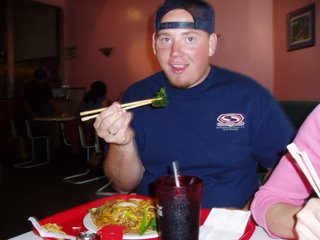Book Reflection – Missions and Money
This book, written by Jonathan Bonk, offers a great perspective on the challenges related to money that come with missionaries from the West going to non-western contexts. I really appreciate Bonk’s perspective coming from a Mennonite background where there is a strong value on simplicity of life. When reading this book, I was reminded of a book I previously read called Cry of the Urban Poor by Viv Grigg. He is writing on the values of the organizations he started when he describes the value of inner simplicity. He writes:
Renouncing possessions is an outworking of an inner simplifying of our lives which leads to the openness, gentleness, spontaneity, and serenity that marked the Master. In renouncing possessions we seek to simplify our external lives in order to simplify more clearly our inner lives and focus on knowing our Lord.
Along with outward poverty, we desire an inner humility; along with servant works, we seek the spirit of a true servant. In caring little for this world where we are strangers and pilgrims, we set our hearts on that spiritual home where our treasure is being saved up, and on that glory which we shall share with our Lord, provided we suffer with him.
We encourage middle-class Christians to such simplicity of lifestyle. For some it means earning less, and using their time for the kingdom. For others it means to earn much, consume little, hoard nothing, give generously, and celebrate living. Such lifestyles are indefinitely varied. We refuse to judge others in such areas (Grigg 117).
To read my reflection on this book, look
here and
here.
Early on in the book, Bonk writes about the word “need.” In our society, this word has really lost its definition. What we “need” ends up usually being what we “want.” Bonk describes that even western missionaries in non-western contexts do this. He speaks about the “need” for the latest technology in the mission field to better the work or research (27-29). I think this is very connected to our instant gratification society where we see something we want and just get it. Often if it is not obtained right away, we are unhappy. I am convicted even as I write this, because I’m writing this on my laptop, I have an ipod, a digital camera, plenty of clothes, etc. At the same time, I usually try to only purchase what is necessary and I wait to try to prevent impulse purchasing.
Another word that Bonk mentions is “progress.” He writes of historical missionary movements among the non-west were considered an exercise to take the “uncivilized” and make them “civilized.” This process of civilization was very connected to the notion of social and economic progress (20-22). The end goal was affluence for these uncivilized people; i.e. if these people were able to progress and becoming affluent, their problems would be solved. The problem is that this surfaces in different ways even today. It is not some distant problem from eras ago. What is seen now is western missionaries coming into a poor area and assuming that they really know what these people need and since they aren’t receiving it now, we must provide it for them or teach them that they need it and must get it themselves. For centuries and millennia many societies worked very well without our influence, so why do we assume that these people really
need our suggestions and help.
An important section of the book includes the theological and ethical backing to this claim of western affluence being detrimental to non-western missions. Bonk asks, “How can the economically secure and lavishly materially accoutered missionary teach the poor – with any degree of credibility – about simplicity, generosity, contentment, or the costly sacrifice entailed in all genuine discipleship?” (79). Later, Bonk asks if the sin of greed is less deadly for missionaries than it is for the people they are ministering to? Of course not. Bonk describes greed as “the desire for more than enough in a social context in which some have less than enough” (80). With this being said, can any of us in North American say we are not greedy? Our consumerist and materialistic culture pushes us to buy and buy more, but we need to fight this urge and live a simpler life where we are more giving and compassionate to our neighbors in need.
I will end this reflection with the following quote that gives great insight to this problem. Bonk shares of how the Incarnation of our Lord speaks to this issue, He writes,
At the very least, the Incarnation means giving up the power, privilege, and social position which are our natural due. Christ’s mission in Christ’s way must always begin, proceed, and end with the great renunciation. And this sacrifice is made not merely with reference to “what could have been” back home, but by the standards of the people among whom the missionary is called to incarnate the gospel. This does not leave much room for the power-generating, status-inflating, career-building, self-protecting affluence to which emissaries of the Western churches have become accustomed (117).
…ahhhh… last reflection for Fuller… J







